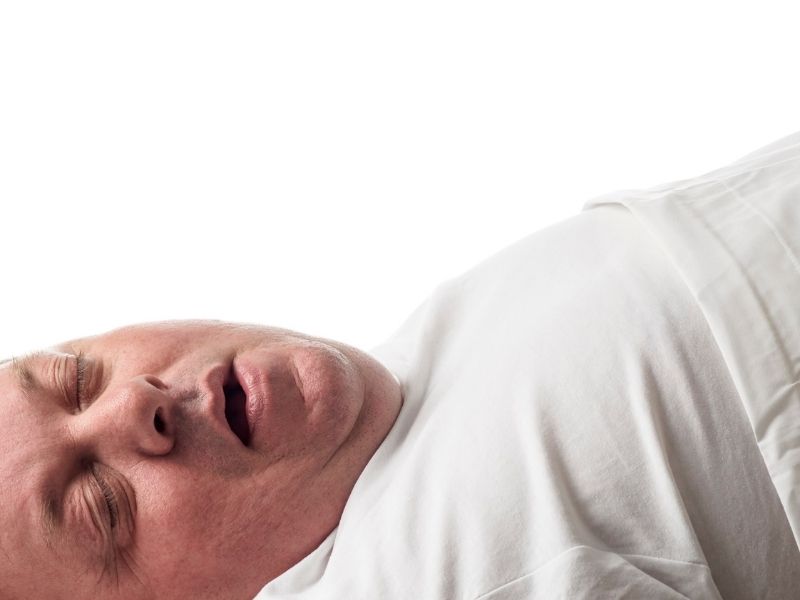Obesity, the state of being overweight, and sleep apnea are conditions that can affect each other. Sleep apnea is a common condition where your breathing stops and restarts many times while you sleep. This can prevent your body from getting enough oxygen. One of the main contributors to sleep apnea is obesity; obesity can also cause or worsen sleep apnea, as can type 2 diabetes mellitus (T2DM), hypercholesterolemia and hypertension. Obesity can worsen existing sleep apnea or cause sleep apnea. One of the negative effects of excess weight on the body is that it causes sleep disorders. Sleep apnea can be caused by obesity and this sleep problem causes people not to get enough and healthy sleep. The weight balance of people who cannot sleep healthy can deteriorate more quickly. So sleep apnea and obesity are diseases that can trigger each other.
Obesity and Sleep Apnea
Research on the relationship between obesity and sleep apnea shows that sleep problems increase the risk of obesity. It has been observed that people who sleep inadequately and unhealthily take in more calories and prefer unhealthier foods. Glucose metabolism may be impaired, metabolism and hormonal balance may be disrupted and hormones that give the feeling of satiety may decrease. It has also been recorded in studies that hunger hormone is secreted more in people who sleep poor quality sleep and the meals eaten at night increase. In addition to all these, people with sleep disorders spend less time on sports activities than other people. From another perspective, it is known that people with obesity also have impaired sleep quality and an increased risk of sleep apnea.
The main preventable risk factors for reducing obesity are awareness of lifestyle changes (eating behaviors, smoking, drinking alcohol, etc.) and understanding the importance of exercise. If these lifestyle changes are widely practiced, not only will the consequences of obesity and sleep apnea be reduced, but the incidence of cardiovascular disease will also be greatly reduced. We need awareness of the importance of weight loss through lifestyle change or bariatric surgery to improve quality of life.

Does Obesity Cause Sleep Apnea?
Some diseases are known to cause sleep apnea. One of these diseases is obesity. The incidence of sleep apnea is quite high among people with overweight problems. Overweight problem causes extra fat storage in the neck and neck of the person. These fats, called pharyngeal fat, obstruct the upper respiratory tract during sleep and impair sleep quality. This is the reason why overweight people have more snoring problems. Snoring is one of the most common symptoms of sleep apnea. Pressure on the air passageway causes loud breathing. Fat around the abdomen also puts pressure on the chest. This pressure negatively affects the lung capacity. Lungs with reduced air capacity cause breathing to become difficult. When a person gains 10 percent of his/her weight, the risk of developing sleep apnea increases 6 times.
Do All Overweight People Have Sleep Apnea?
Not all overweight people have sleep apnea. Recent studies show that the rate of fat in the cervical region of the person and the incidence of sleep apnea are directly proportional. The more fat around the neck, the narrower the airways during sleep and the more difficult breathing becomes. The second adiposity problem that triggers sleep apnea is internal fat in the body. The more fat in the internal organs, the more likely it is to have sleep apnea.
How Should a Person with Sleep Apnea Eat?
People with sleep apnea can take some steps to eat healthier and get rid of excess weight. A balanced diet and regular exercise can help people lose excess weight and alleviate the symptoms of sleep apnea. Including omega-3 sources such as walnuts, flaxseed and fish can reduce inflammation and reduce the negative effects of sleep apnea. People with sleep apnea should limit salt and sugar whenever possible, as these foods can make sleep problems worse. If the person has advanced obesity and sleep apnea accompanies this disease, bariatric surgery may be considered as a solution.
Does Obesity Surgery Cure Sleep Apnea?
Obesity surgery is an operation that cures more than 70 percent of obesity-related health problems, including sleep apnea. If the symptoms are due to excess weight, sleep apnea may improve as a result of surgery and weight loss process.








